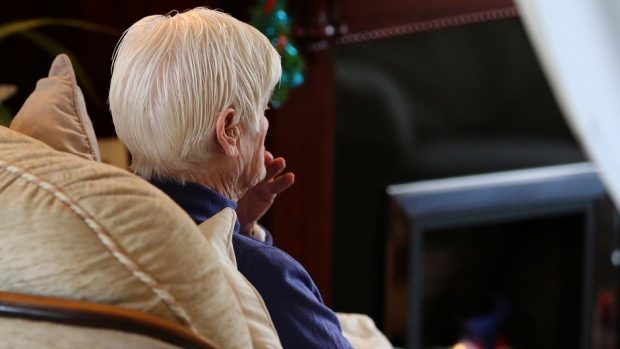Thousands of people across Aberdeenshire will receive letters this week informing them that the cost of care services is to increase.
Aberdeenshire Council has approved a new charging framework which it claimed will pave the way for greater consistency in the amount service users have to pay the local authority.
But hundreds of people who have saved for retirement will be forced to pay more for services such as visiting day care centres or living in very sheltered accommodation.
Last night, chief officer of the Aberdeenshire Health and Social Care Partnership, Adam Coldwells, said anyone on an income of more than £16,000 a year would be expected to pay more.
However, he added that the change should not be considered a “cut”.
The local authority has committed itself to making savings of £28million in the next financial year.
Aberdeenshire residents currently pay up to 35% of the cost of their care, regardless of financial circumstances.
That cap is being removed on April 4, so that people who can afford to pay more will make a “fair” contribution.
Mr Coldwells said: “In the next 20 years, the over-65 population in Aberdeenshire is expected to rise by 117%.
“Coupled with reductions in public sector funding and legislative changes such as the living wage and pension reforms, there will be significant pressures on the social care budget.
“During the recent engagement on Aberdeenshire Council’s budget, there was a strong view expressed that we should ensure services are able to be accessed by those most in need.
“Taking all this into account, we have removed the cap which we placed on individual contributions towards the cost of care.
“We understand this may lead to people being concerned, but this will be subject to a financial assessment and only those with the ability to pay more will do so.
“It will ensure that those who can afford to pay will contribute a bit more while still protecting the less well off.”
Letters are expected to land on doorsteps by the end of the week.
Following their arrival, people in care will be talked through the changes on a one-to-one basis, where they can offer their thoughts and submit themselves to a financial status check.
But, even if they are able to prove that, despite their personal finances, they cannot afford to pay more for care, there is little they can do to stop the local authority demanding more money.
The change will mean people currently paying £6 per session at a day care could now be charged £20.
And a person living in a very sheltered care home with their own tenancy unit could be billed up to £400 a week, almost £300 more than they are today.
Mr Coldwells added: “We understand that is a really big change for the number of people who could afford to pay it.
“But lots of it is still free. There is still free personal care, and a lot of things won’t be affected.
“However, on the things people currently pay for, we will expect the contribution to be bigger.
“It’s meant to be fair – if you have more resources we expect you to pay more than someone who has less. The vast of majority of people won’t see a difference.”
The chief health officer added that about 150 people will be affected by the increased charges.
The change is expected to boost the local authority’s coffers by hundreds of thousands of pounds.
Mr Coldwells could not put a figure on the exact amount.
But he added: “We expect it to be a few hundred thousand pounds. That enables us to keep providing services without cutting them.”
Any proposed changes to the new charging framework would have to go through the process of being agreed at full council.
Last night, Eben Wilson of Taxpayer Scotland branded the move “worrying”.
He said: “The meaning of ‘no more money’ is coming home to roost more and more.
“The state is beginning to fail us because it has been unable to control its costs – the taxes we pay are not providing the services we want.
“Every Scottish council really needs to look at its internal costs to try to provide us with more value for money.
“The burden of old age was never going to be resolved by hope triumphing over rationing.
“The deed is done. Putting a price on old age care at least tells the next generation that they’re going to have to save from an early age.”
